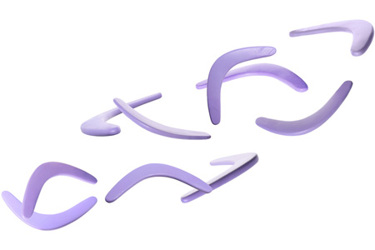Will It Not Die? The BIOSECURE Act Back With Iterations

By Louis Garguilo, Chief Editor, Outsourced Pharma

Act VI, in which the antagonist returns to the stage.
The stage is the U.S. Senate, and the antihero, if you will, The BIOSECURE Act. Earlier this month, the Senate included a new version of the legislation – again as an add on to a National Defense Authorization Act (NDAA).
This drama will drag out. The Act was not included in the U.S. House of Representatives version of the NDAA, and thus will have to be renegotiated as part of a “reconciliation process” before being ultimately passed.
As a reminder of earlier scenes in this geopolitical play impacting drug development and manufacturing – and particularly the outsourcing of which – the BIOSECURE Act precludes entities involved in any way with U.S. government contracts from working with biotech organizations “of concern.”
To date, I’ve written a whole editorial series on the BIOSECURE Act where it’s pointed out even the repercussions to biotech (and pharma) organizations NOT dealing with government contracts, but contracting otherwise with those named organizations, are stiltifying.
In other words, the negative influence on the entire biopharma industry is wider than the area the Act directly references.
I have fairly but vehemently pointed out (I believe that’s an accurate description) the inclusion of WuXi Apptec – one of the world’s leading CDMOs – in the earlier versions of the BIOSECURE Act seemed misguided.
Somebody may have been listening – to this publication and our readers perhaps, but also assuredly to many others in the industry (excluding, interestingly enough, the U.S.-based Biotechnology Innovation Organization (BIO):
Direct mention of the (China-related) biopharma organizations identified in the earlier versions of the Act have been removed in this newest iteration.
No naming of any names in the bill now exist; however, the Act’s enumerated list has been replaced by what becomes a separately managed list published by the U.S. Department of Defense (DoD). This is called the 1260H List, with it first publication earlier this year.
The list does not include Wuxi Apptec.
From the dozens (upon dozens) of conversations, roundtables, etc., we’ve had at OutsourcedPharma.com, and so many others held around the world, we can surmise at least some legislators came to an epiphany:
We outsource a whole lot of drug development and manufacturing to WuXi and other foreign-based contract organizations (CDMOs). Piles of drug sponsors trust them; many existentially rely on them.
Offshore facilities – like their U.S.-based CDMO competitors – serve a vital role. They help keep prices/costs down; allow biotechs to form without large investments in internal infrastructure; provide access to experienced and skilled labor; etc.
Biotechnology in the U.S. flourishes because of our modus operandi of staying lean and leaning on outsourcing to external partners.
Biotechs rigorously and carefully select CDMOs. This publication habitually provides actionable information and advice from professionals on how to continue to elevate due process and vetting of external partners.
Answer me this: What biotech contracts with a partner it does not trust, and does not continuously verify as trustworthy?
I’d suggest the answer today is few, if any.
Yes, biophama organizations have negative experiences with the CDMOs they work with. That cannot be denied and we document that often.
No industry matches buyer and supplier perfectly; not all suppliers are equal. But more to the point here, perhaps no industry operates most efficiently with government controlling which partners businesses can work with.
This Is Not The End
Finally – cross that out, there seems no finality with this Act – but as pointed out succinctly by the law firm Hyman, Phelps & McNamara, another notable change in the new bill is the narrowing of the “biotechnology equipment or service” clause.
It’s still defined as equipment or service “designed for use in the research, development, production, or analysis of biological materials,” but this current Senate draft omits the specific reference to mass spectrometry technologies and polymerase chain reaction machines.
“Carving out these two technologies was a high priority for the biopharma industry due to their ubiquity in product development and manufacturing,” writes the law firm. “For example, in our experience something like 90% of manufacturers use mass spectrometry during the manufacture of small molecule drugs.”
Where then, are we now?
WuXi (for the time being) is delisted. So is some heavily used equipment. Some Senators have apparently listened to the major concerns of our biopharma industry.
Does this make you feel more secure in working with China-based or other offshore CDMOs?
It may or may not. Either way, I’m sure there are more scenes and acts to follow.
I’ll conclude by saying what I have omitted in this short summation.
I have not retraced the authentic geopolitical, national and economic security areas in which China (the main target) indeed poses a threat to the U.S. At this point in history, it is undoubtedly economically and militarily antagonistic.
The U.S. understanding that it is in the middle of a fierce head-to-head competition with that nation, and taking actions to combat bad behavior – including potential behaviors of some of China’s companies – is, in my opinion, laudable.
But let’s take the correct actions, and aim at the right targets.
If you are interested in a deeper dive, or reviewing how we got here, I suggest this refresher course.
In the meantime, everyone should outsource – to Wuxi or to anyone else – with eyes wide open and due diligence on a high level.
We simply cannot decouple, or delimit our development and manufacturing outsourcing into national components determined by governments. We are global, and need to stay that way to ultimately serve patients around the world.
